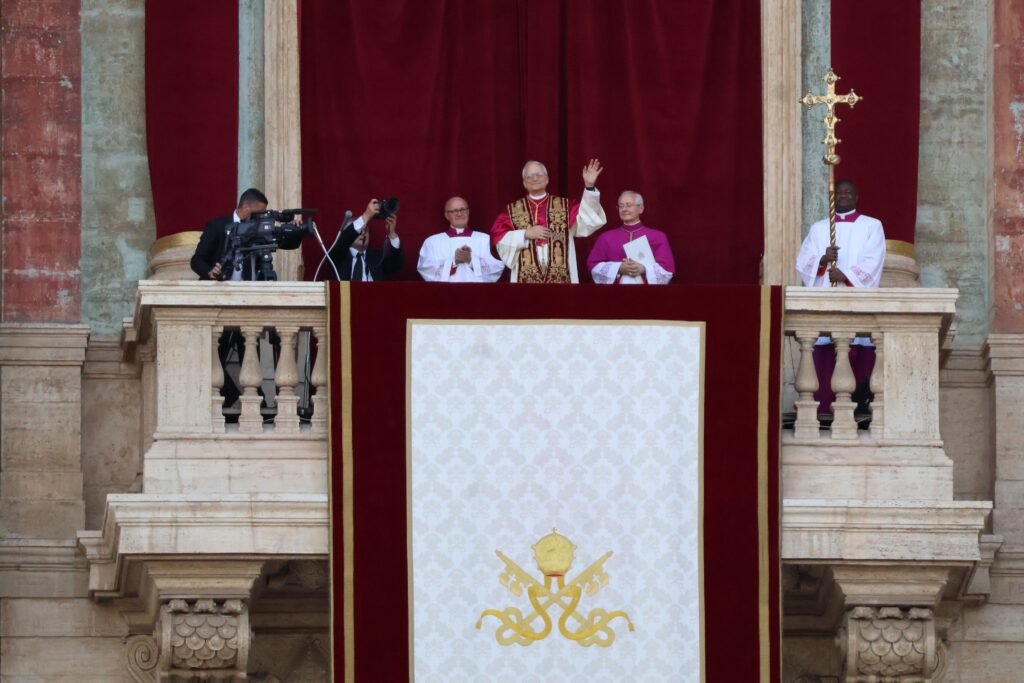 Some years ago, business leaders were caught up in a trend called “Management by Objective” (MBO). MBO is a method of organizing and motivating employees to accomplish the objectives of the company. So if the objective of a company is to sell a million widgets, whatever any employee does to help the company reach that objective is praiseworthy.
Some years ago, business leaders were caught up in a trend called “Management by Objective” (MBO). MBO is a method of organizing and motivating employees to accomplish the objectives of the company. So if the objective of a company is to sell a million widgets, whatever any employee does to help the company reach that objective is praiseworthy.
In some parishes, catechumenate processes seem to be MBO processes. The way you can discover this is to examine the expectations of the RCIA team around the Easter season. Many team members have an expectation that the neophytes or newly received Catholics will sign up for ministries during the period of mystagogy. It is as though the team had been doing everything it could to accomplish the objective of getting the new folks into a parish activity.
Parish participation isn’t the objective
The RCIA is supposed to have a bit of an MBO focus, but parishes that have participation in parish stuff as the objective have chosen the wrong objective. The Second Vatican Council lays out very clearly what the objectives should be for members of the royal priesthood.
In the Decree on the Apostolate of the Laity, the bishops said:
The apostolate of the Church and of all its members is primarily designed to manifest Christ’s message by words and deeds and to communicate His grace to the world. (6)
The objective of the whole church is to communicate God’s grace (or God’s salvation, or God’s love) to the entire world. The bishops used the word communicate, which implies much more than just saying God loves the world. We have to say the message and enact the message in such a way that the message is heard.
The centrality of word and sacrament
We do that in two ways. The first way is through word and sacrament, which is primarily the apostolate of the ministerial priesthood (the ordained clergy). But those of us in the royal priesthood also have a role to play in the ministry of word and sacrament. For example, everyone on an RCIA team is participating in the ministry of word and sacrament.
The second way we make God’s message known is through our special charism as members of the royal priesthood. We have been given the gifts and the responsibility for going out from our parishes and into the world to communicate God’s love. If our catechumenate process has an objective, it is to create within our seekers an enthusiasm for going back out into the world to bring good news to their schools, workplaces, marketplaces, political activity, and social gatherings.
The laity must take up the renewal of the temporal order as their own special obligation. Led by the light of the Gospel and the mind of the Church and motivated by Christian charity, they must act directly and in a definite way in the temporal sphere. As citizens they must cooperate with other citizens with their own particular skill and on their own responsibility. Everywhere and in all things they must seek the justice of God’s kingdom. (7)
The preeminence of Christian social action
That paragraph is a little dense with church-speak, but focus on the last sentence. What we need to be training the catechumens and other seekers to do is “seek the justice of God’s kingdom.” I wonder if our RCIA teams are up for that challenge. It is one thing if we think our objective is to get the neophytes to sign up to be a lector or serve on the parish festival committee. It is very different thing to orient our entire catechumenate as a justice training process.
Yet, that is supposed to be our first and primary goal: “Preeminent among the works of this type of apostolate is that of Christian social action which the sacred synod desires to see extended to the whole temporal sphere, including culture” (7).
The church’s teaching on social action is not well known among those of us in the royal priesthood. When RCIA teams ask us what they are supposed to teach the catechumens, they don’t really expect to hear that social action should be the “preeminent” focus of the training we do. Even so, that is the directive of the church.
Your turn
In a future post, we’ll look at why social action is the preeminent objective for our RCIA processes and what training for social action looks like. Until then, comment below about your own objectives for your catechumens and other seekers. Are they focused on training for social action? If not, what steps can you take to get there? If so, what advice can you offer the rest of us to help us move toward that objective?


















Love you guys, especially your webinars. I can watch them on my phone. ♡
I have always enjoyed and benefited from your advice and tips regarding RCIA but I find myself a little wary of this article. It seems to put more weight on social action for justice than the Decree on the Apostolate of the Laity makes.
Before Section 7 and its emphasis on renewing and constantly perfecting the temporal order, comes Section 6: “The mission of the Church pertains to the salvation of men, which is to be achieved by belief in Christ and by His grace. The apostolate of the Church and of all its members is primarily designed to manifest Christ’s message by words and deeds and to communicate His grace to the world…”
Section 6 continues to explain that this is also an apostolate for the laity and describes what this might look like:
“There are innumerable opportunities open to the laity for the exercise of their apostolate of evangelization and sanctification. The very testimony of their Christian life and good works done in a supernatural spirit have the power to draw men to belief and to God; for the Lord says…However, an apostolate of this kind does not consist only in the witness of one’s way of life; a true apostle looks for opportunities to announce Christ by words addressed either to non-believers with a view to leading them to faith, or to the faithful…The words of the Apostle should echo in all hearts, “Woe to me if I do not preach the Gospel” (1 Cor. 9:16).(1)”
I suggest that the order of these aspects of the apostolate point to an important truth; that the apostolate of evangelisation comes before social action and the measure of the success of social action must be whether people have been evangelised.
I would therefore suggest that the preeminent work of the RCIA is to produce missionary disciples (Evangelii Gaudium) who evangelise. Saint Pope Paul VI outlines in Evangelii Nuntiandi (an important document that deepens the understanding of apostolate described in the Decree on the Apostolate of the Laity) that the “witness” of life (21) must be accompanied by proclamation (22) and that we will know that both have been successful when a transformation has occurred that includes a “program of life”, and “a visible entry into a community of believers” (23). However, the “touchstone of evangelization” is that the evangelized person goes on to evangelize others (24).
Saint Pope Paul VI continues by making it plain that “Evangelization…is a complex process made up of varied elements: the renewal of humanity, witness, explicit proclamation, inner adherence, entry into the community, acceptance of signs, apostolic initiative. These elements may appear to be contradictory, indeed mutually exclusive. In fact they are complementary and mutually enriching. Each one must always be seen in relationship with the others.” (24)
So both are important but that they must be seen in relationship. I would suggest that the Decree on the Apostolate of the Laity, and the many documents on evangelisation that have followed, make it clear that the apostolate of the laity is first and foremost one of evangelisation and that this should inform all apostolates of social action for justice.
I may be misreading your emphasis, so I look forward to your further articles on this subject to clarify.
As I interview new inquirers, I am touched by how many are motivated to inquire by witnessing the life of a Catholic friend. Many mention the peace, the kindness, the generosity in the lives of their Catholic friends and they want to have the same way of living. This is true evangelism when we live in such a way that others are attracted to Christ.
As we introduce the inquirers to our Lord, they also become more at peace, more patient and kind and they begin to understand unconditional love and giving without expecting in return. This is the beginning of social justice. It takes time but they begin to understand that we are one and that social justice issues are important.
Thank you for this article.
What to do with seeker who comes to meetings but not to Mass… just going through before upcoming marriage… going through motions… Plenty of excuses why…
Hi Dorothy. Just from your brief statement, it seems your person is more in need of evangelization than formation at this point. I would begin having faith conversations with them to discover how the Holy Spirit is speaking to them and begin to build upon the work of the Spirit in their hearts.